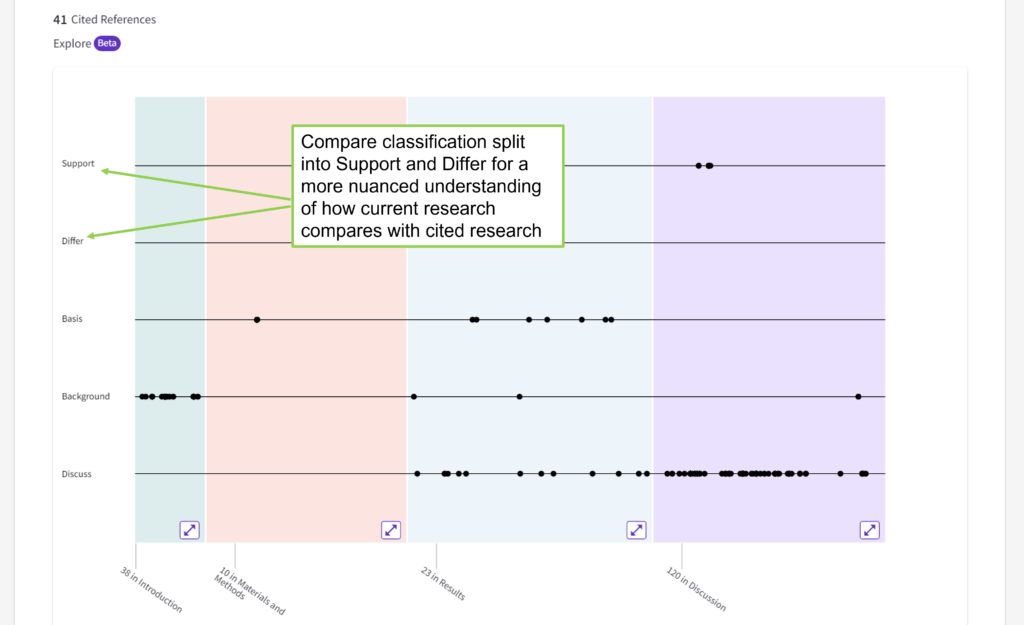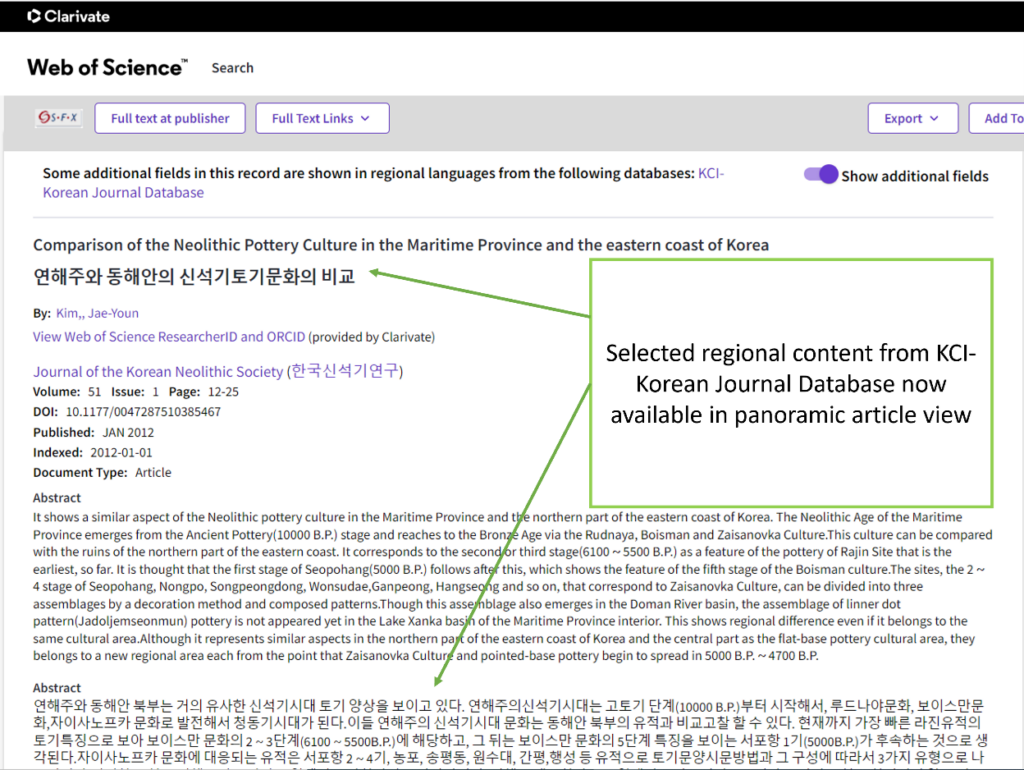More nuanced citation classifications
Curious about how or why an author cited a reference in their research? Web of Science has been classifying each in-text mention to indicate why the author may have cited the reference in each instance since summer of 2021.
Classifications are assigned by evaluating the author’s exact words in the sentence containing the mention as well as the sentence before and after. The mentions are classified as follows:
- Background—previously published research that orients the current study within a scholarly area.
- Basis—references that report the data sets, methods, concepts and ideas that the author is using for her work directly or on which the author bases her work
- Discuss—references mentioned because the current study is going into a more detailed discussion.
- Compare—references that the current study’s results can be compared to; the author could be extending on a prior concept or method or confirming past findings or refuting past findings.
In this release, Web of Science is offering a more nuanced approach to the mentions that had previously been classified as “compare.” Now, we are replacing “compare” with two new classifications:
- Support–references which the current study reports to have similar results to. This may also refer to similarities in methodology or in some cases replication of results.
- Differ–references which the current study reports to have differing results to. This may also refer to differences in methodology or differences in sample sizes, affecting results.
By knowing whether an author is comparing their research in a supportive manner, you can focus on research whose findings are broadly accepted. If you are looking for ideas that are novel, then in-text mentions that are cited in a differing manner may signal ground-breaking research.
These new classification systems will appear wherever the classifications previous occurred in the Web of Science Core Collection: the enriched cited references and the citation alerts.

KCI-Korean Journal Database and SciELO now available in Panoramic article view
We continue to make it easier to access all information about articles indexed in many collections by expanding the panoramic article view beyond the collections already supported (BIOSIS Citation Index, BIOSIS Previews, Biological Abstracts, CABI: CAB Abstracts® and Global Health®, FSTA®-the food science resource, Inspec®, MEDLINE®, and Zoological Record).
In this release, fields available in Korean (for example, author names, article title, abstract) from KCI-Korean Journal Database are presented when viewing the panoramic article view in All Database and Web of Science Core Collection if you have access to KCI-Korean Journal Database. Visibility of the original language helps you search more precisely when searching on author names, source titles, etc.

In a similar manner, SciELO-specific fields such as SciELO Categories and/or SciELO Collections are now available in the panoramic article view from All Databases and Web of Science Core Collections. These categories help you find more related content—simply click on the category to find more content from SciELO within this category.

If you wish to read the complete full record from KCI-Korean Journal Database or SciELO, you may easily navigate to it by clicking the database name at the top of the page.
More local language content from regional databases will be added in coming releases.
Breadcrumb enhancements
Users can now choose to expand or collapse breadcrumbs. By default, breadcrumbs would collapse when users have navigated through 6 or more pages. The collapsed design eliminates the need for users to scroll down in order to view primary content of the article, while also enabling you to easily expand all breadcrumbs by clicking the dots “…” within the breadcrumbs section.

Web of Science Usage Reports update
New Web of Science is now fully COUNTER5 compliant. Read our FAQ for more information: https://clarivate.com/webofsciencegroup/release-notes/wos/new-wos-admin-faq/
Thank you for your support and feedback. Together we will bring a better Web of Science to all.
The WoS Product Team